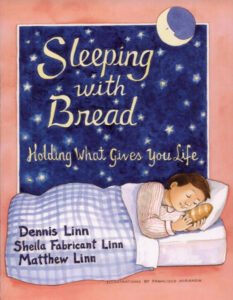 The examen is an ancient contemplative practice with potential to have a profound impact on one’s spiritual life. The EXAMEN, often called the examen of consciousness by followers of St. Ignatius, involves a prayerful daily review of one’s walk with God.
The examen is an ancient contemplative practice with potential to have a profound impact on one’s spiritual life. The EXAMEN, often called the examen of consciousness by followers of St. Ignatius, involves a prayerful daily review of one’s walk with God.
There are many ways to practice the examen, but most include a reflection on positives and negatives, high point and low point, and some consideration of God’s role throughout the day.
This is a simplified method of the Examen:
(1) GIFT: Invoke the Gift of the Spirit
In a journal, record the graces of the day. Begin by accounting for those items for which you are grateful or moments where God’s grace was apparent.
(2) GRACES of the Day-Gratitude & Grievances
♦ Next, explore the more difficult moments of your day and allow God’s grace to be present as you recall those experiences. As you consider these struggles, release them into Christ’s loving care.
(3) GETTING READY for tomorrow.
♦ Consider what tomorrow holds for you. Offer a prayer to invite God’s presence to be with you as you go through the activities of the next day and evening.
♦ Conclude in the Lord’s Prayer.
 Sleeping with Bread by Dennis and Sheila Linn
Sleeping with Bread by Dennis and Sheila Linn
This life-giving exercise is illustrated through a lovely story in Dennis and Sheila Linn’s book, Sleeping with Bread:
During the bombing raids of WWII, thousands of children were orphaned and left to starve. The fortunate ones were rescued and placed in refugee camps where they received food and good care. But many of these children who had lost so much could not sleep at night. They feared waking up to find themselves once again homeless and without food. Nothing seemed to reassure them. Finally, someone hit upon the idea of giving each child a piece of bread to hold at bedtime. Holding their bread, these children could finally sleep in peace. All through the night the bread reminded them, “Today I ate and I will eat again tomorrow.”
Questions recommended by Father Linn include the following pairs of questions:
When today did I have the greatest sense of belonging to myself , to others ,to God? When did I have the least sense of belong- ing?
When did I give and receive the most love today?
When did I give and receive the least love today?
How was I most aware of grace in my life today?
How was I least aware of grace in my life to- day?
For what moment today am I most grateful? For what moment today am I least grateful?
Examen for children:
A fun activity to do with children each night is ask them about their rose, thorn and bud.
The rose is reflective of a moment of calm, joy or happiness.
The thorn is what was difficult or challenging during the day.
The bud is what they are looking forward to the next day.
This practice develops an internal compass in children toward their own identity development, awareness of God’s presence in their daily lives and nurtures healthy brain development.
See more on this life-giving practice:


 Download Guided Christian Meditation on iTunes!
Download Guided Christian Meditation on iTunes!